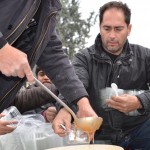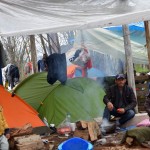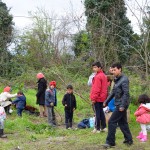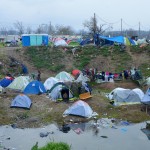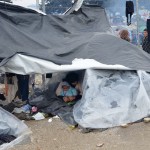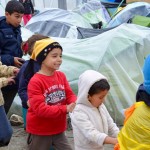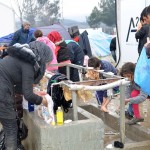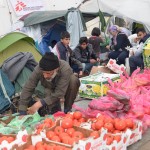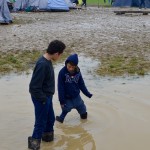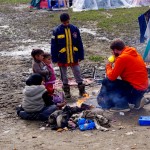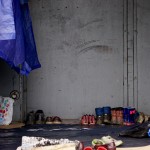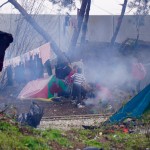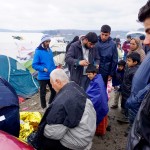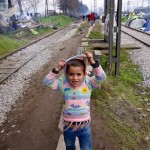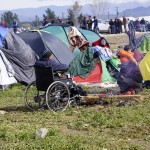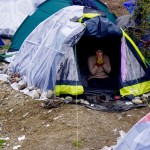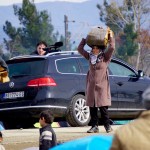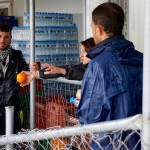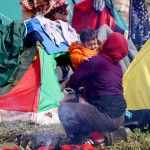Warsaw
I spent the morning at Warsaw’s Rising Museum, which was opened ten years ago in what was once the capital’s tram power plant to commemorate the tragic (and betrayed) 1944 uprising against the Nazis — the one the Soviets failed to support, halting their advance nearby while the Germans demolished the city, and the Western allies failed to assist.
As I have spent much of the past four years focusing on reporting on Syria, it his hard for me not to draw parallels with the awful plight of the anti-Assad rebels. The photographs of razed Warsaw remind me of the towns of northern Syria and a large portion of the historic city of Aleppo.
And in the museum you can read this editorial written by George Orwell complaining about the absence of support for the uprising offered by the Western allies. “The only thing they ask is, ‘Give us weapons,’ and when these weapons do not arrive, when their friends keep silent, they cannot understand. But there will come a time when they will, and we will pay the price for our deliberate, cold calculations.”
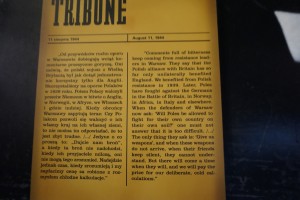
The price is already being paid when it comes to Syria: the refugee crisis impacting Europe is one price — and a costly one as it is ripping the European Union apart.
Another has been paid already: the prolonged conflict has become ever more sectarian, as was predicted by several reporters covering Syria, including myself, and it will have consequences not just for the immediate region but further afield.
Another cost has been to fuel recruitment among desperate Syrian fighters by hardline and al Qaeda-linked Islamist militias and, of course, the Islamic State terror army. Neglect allowed the rise of IS, as I and others predicted would happen, and the consequences of that are being seen on the streets of US and European cities.
In fits and starts, shaped by the day-to-day partisan battles back in Washington, commentators from the libertarian right and the non-interventionist left have argued there are no moderates among the Syrian revolutionaries. And this is untrue.
The claim is made by writers who have no authority, no first-hand knowledge, and who have not given the uprising against Bashar al-Assad the courtesy of ever bothering to find out on the ground what is going on. Syria is a dangerous place — as I know — but unless you mix with the fighters and their civilian supporters, how can you make the judgement call that they are all extremists?
Moderate is in the eye of the beholder, of course. Moderation is relative. But the rebel ranks are full of people I would describe as moderates. Yes, many, especially those who come from rural areas, are religious and cultural conservatives; their womenfolk may wear the hijab; their idea of democracy is sketchy at best. Their victory will not usher in a Western-style democracy. Aleppo won’t turn into Chevy Chase or Hampstead. But they are not jihadists and they have no truck with beheadings or bombing innocents in the West.
Their fight has been for human dignity — for the right to have some say about their governance. Their fight has been against the secret police and the pillage of the state by a ruling elite. Their fight has been for the right to be allowed to start down the path of change and reform and to develop. And our excuse has been to say it is too difficult.



